#The Booksellers
Photo




New-to-me movies watched in 2022: The Booksellers (2019)
“You can, of course, open any book from five hundred years ago and read and think about what’s there.”
33 notes
·
View notes
Photo

The Booksellers (2019) D.W. Young.
4 notes
·
View notes
Text
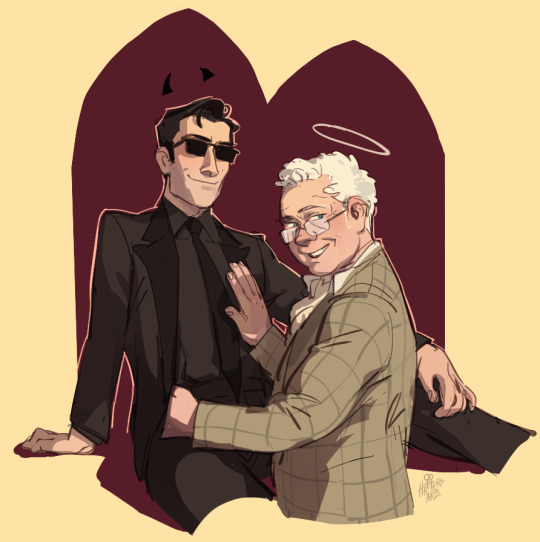
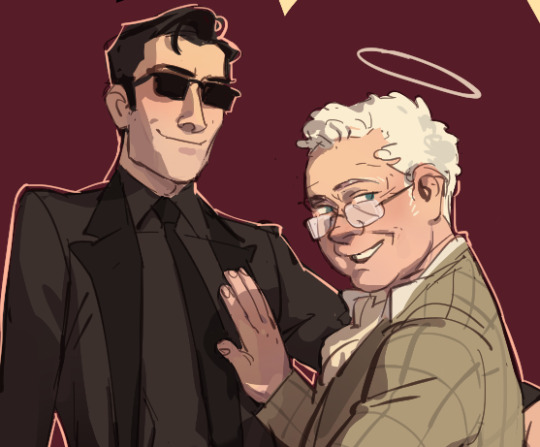
drew some book!husbands. they feel like they've taken more traits from each other than the show.
#decided book!az has hints of elton john. its the old queen energy#book!crowley is nice looking average white man who learns how to wear a suit but half the reason he's interesting is bc he's trailing aroun#an old bookseller who looks maybe 30 years his senior and giving him babygirl eyes#its the stark contrast in the looks between the “bland” (cr) and “interesting” (az) that im going for with these guys#god im trying to make them not look like butch lesbians purely from an art skill pov but i cant beat the allegations#good omens#ineffable husbands#crowley#aziraphale
19K notes
·
View notes
Text
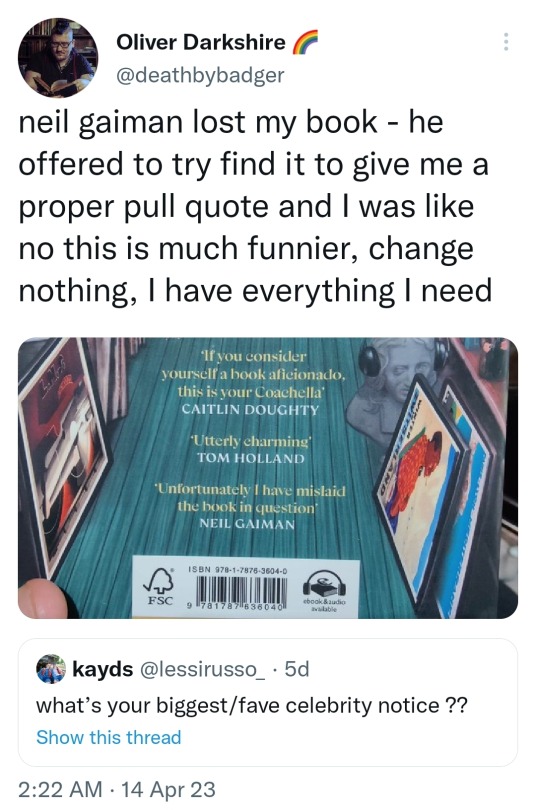
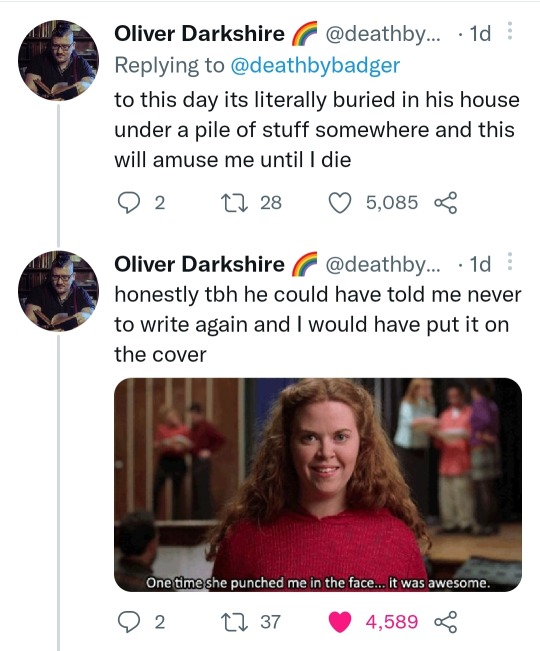
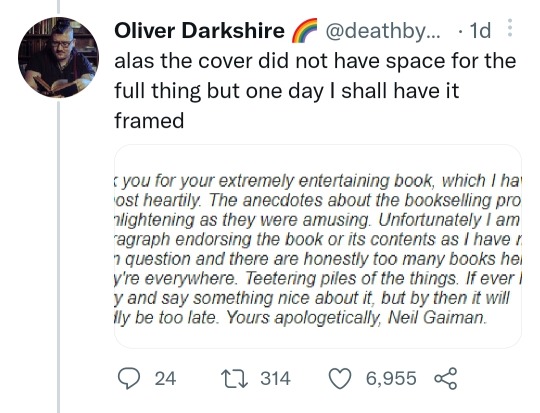
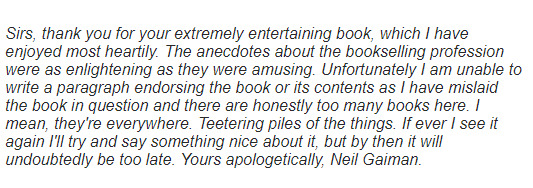
Another day, another delightful Neil Gaiman story.
----------------
EDIT: Where are my manners. The book in question is Once Upon A Tome: The Misadventures of a Rare Bookseller
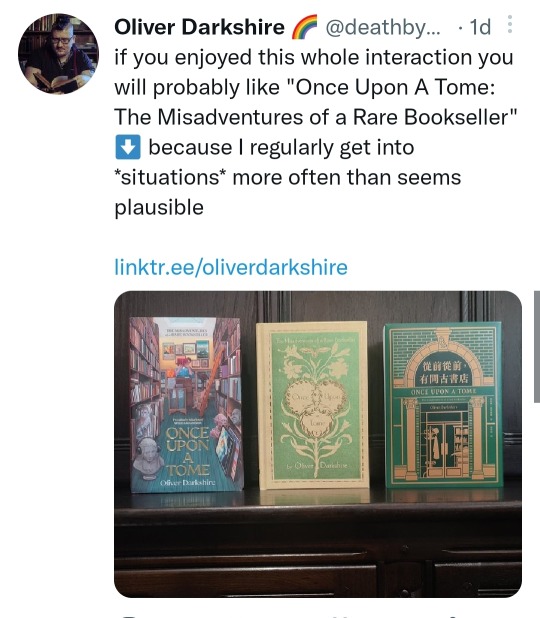
linktr.ee/oliverdarkshire
30K notes
·
View notes
Text


the bookseller is the same lil guy as harvey’s cutscene :)
1K notes
·
View notes
Text
Romantic expectations and the story we didn't see: A magic trick hiding in plain sight
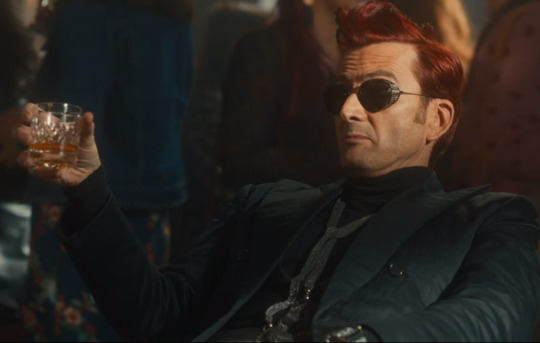
Here's a hopeful meta for all my fellow celestial brainrot sufferers out there. Cheers! :)
This idea started as a dead end, trying to track the movements of Crowley’s sideburns/tattoo because I thought time travel shenanigans were afoot. I had to abandon that theory when it was pointed out that David was simultaneously filming as the sideburns-having Fourteenth Doctor, and in-universe Crowley can do whatever he wants with his facial hair whenever he feels like it. But hey - null findings are still findings!
On the bright side, pausing the show to make notations in a spreadsheet forced me to slow down and notice other changes I'd overlooked the first time around: acting choices, costuming choices, references to book lore. And possibly a few surreptitious flicks of the wrist, in places where we’re meant to be focused on the magician’s other hand.
@amuseoffyre and @ineffablefood had a great exchange recently about romance and “the significance of misdirection and three-in-one (magic) tricks” throughout the show. I suspect Neil has done something brilliant with the audience’s long-standing expectations (since the 1990s, really) for the love story between Crowley and Aziraphale to develop. And while it is a wonderful story indeed, playing to this expectation lets Neil distract his audience from the blink-and-you'll-miss-them seeds he's planting for the final chapter.
Continued below the cut...
Let’s start at the beginning of Episode 2. First, context: In the previous installment, Crowley stormed out of the bookshop, was whisked away to Hell by Beelzebub where he learns about the Book of Life threat to Aziraphale’s existence, then returned to the bookshop to dance a little apology dance and hide Gabriel with an unintentionally massive joint miracle. In S2E2, we and Shax catch up with Crowley as he's snoozing in the Bentley.
Shax: “You’re in trouble”
A. J. Crowley, cool as a cucumber: “Obviously. Former demon, hated by Heaven, loathed by Hell. How will our hero cope?”
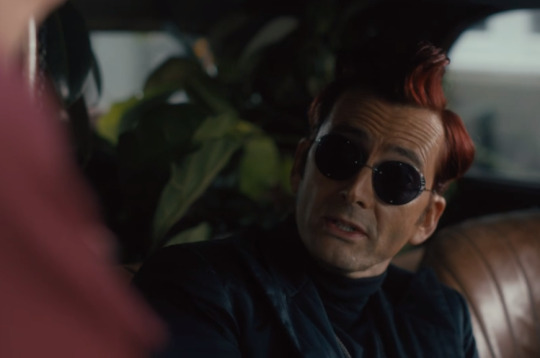
Interesting! Sarcastic? Yes, absolutely; but that’s also a good 4500 years and an averted apocalypse away from “I’m a demon. I lie,” wouldn’t you say? Someone is sounding a whole lot less depressed and aimless and navel-gazey (do snakes have navels?), and a whole lot more like he’s got a project to focus on, since his "what's the point?" ruminations on the park bench in E1.
And of course we all noticed the costume change right away. Hello, black turtleneck. Feeling cute today, thought I’d cover up my graceful long neck? That sounds unlikely. Let’s put a pin in this one.
There’s also an interesting acting choice going on here. Crowley speaks to Shax in a funny, drawling, too-cool-for-you voice that we haven’t heard in a while. Specifically, not since 1967. If you go back and give the S1E3 scene in the Dirty Donkey a listen, you’ll hear it (and if you know of another instance of it that I've missed, please let me know!). In S2E2, he keeps up this odd voice (if anybody knows what kind of affect this is supposed to be, please do tell!) throughout this dialogue with Shax, except for the brief moment when she first surprises him about the joint miracle having been detected.
1967 was a fun year. Crowley masterminded a heist! And seemed like he was having a ball doing it, right up until his little caper was called off after Aziraphale brought him the thermos of holy water. Crowley spoke to his co-conspirators in that same funny, very 60’s-caper-film voice. He wore a hip 60’s turtleneck. He bought petrol for the only time ever, so he could get those sweet James Bond bullet hole decals for his car (per the book, seen on the Bentley in the show).
Those James Bond bullet hole decals would of course have been part of a promotion for this 1967 release, which you just know our film-enjoying demon went to see in the theater:
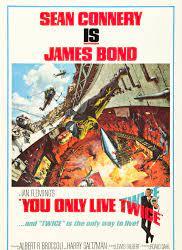
Starring this suave, be-turtlenecked guy:
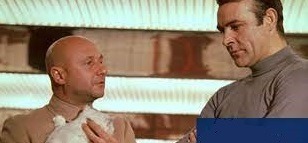
And now - begging your forgiveness - a brief rant.
There are a number of posts out there that refer to Crowley’s S2E2 turtleneck as a flirtatious sartorial choice - actually, ‘slutty’ seems to be the favored accusation. There are even a few posts floating around commenting on how sweet it is that Crowley swaps out his slutty, kinky, throw-me-over-your-desk-and-take-me turtleneck for a more dressy and appropriate collared shirt specifically to attend Aziraphale’s Jane Austen ball.
Now this is all in good fun, and Crowley does indeed look fantastic here, and I do love a good fangirling sesh as much as the next person. However, fandom’s collective tendency to interpret what we are seeing on the screen through the lens of romantic expectation can, at times, give rise to a kind of blinkered enthusiasm that obscures the original text in a haze that is part Mandela Effect, part unrestrained horniness, and part in-group code talking and identity reinforcement.
Respectfully, Crowley’s black turtleneck does not appear at all in S2E5: The Ball. In fact, it never appears again after the end of S2E2.
For Someone’s sake, let’s collectively pull our heads out of the romantic fog/gutter for a moment and focus on what we are actually seeing in the book and on the screen. For Crowley, this is an uncharacteristic within-period costume change. There is a surreptitious flick of the wrist happening here, out in broad daylight, and we are all missing it.
So here’s a thing. Aziraphale appears to have settled comfortably into life on Earth, his neighborhood, his books, using Crowley as an outlet for sharing his good deeds that he would once have reported to Heaven. Meanwhile, at first glance, Crowley appears stuck in a rut. There he slouches on a park bench with Shax in S2E1: a guy who lives in his car, stagnantly clinging to old familiar habits, mulling over the pointlessness of it all.
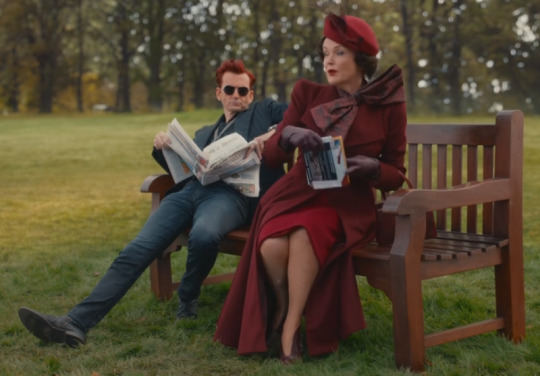
Setting aside the bit about living in the Bentley (I’m going to attribute this to well-documented issues between him and Aziraphale, discussed in many other excellent metas, and move on), Crowley has at least two very good, proactive reasons for maintaining his contact with Hell through Shax. First and foremost, it’s a source of information he can use to keep ahead of potential threats to Aziraphale and himself.
But also, I would posit…he kinda likes it.
Recall that book GO was first conceived as a parody, with Aziraphale and Crowley as spy-against-spy (but not really) field operatives in an ages-old cold war between Heaven and Hell. Their entire book dynamic is rooted in the trope of two opposing agents who have been in the field for so long that they now have more in common with each other than with their respective head offices. Their St. James’s Park meetings among other spies and ministers trading secrets are a sendup of what was once a well-known Cold War-era cliché.
Our contemporary Crowley still likes slick outfits and hellaciously expensive watches and high-performing vintage cars and pens that write underwater while looking like they could break the speed limit. He coaches Shax on how to blend in as a demon on Earth, and he helpfully redirects the wayward contact looking for the Azerbaijani sector chief. He loves improvising and getting away with shenanigans under the institutional radar. And boy golly was he impressed with Jane Austen: master spy, brandy smuggler, and mastermind of the 1810 Clerkenwell Diamond Robbery.
And if you look at it a certain way, for as long as Crowley has considered himself to be on “[his] own side” - going at least as far back as Job - he could almost think of himself as a sort of double agent. It’s actually a very romantic sort of notion, befitting our hopeless romantic of a (professedly former) demon; but it’s romantic in a very different way than we, the audience, have been primed to watch for.
In other words, in a very “on my own side” kind of way, Crowley really gets a kick out of being a spy. Or at least, dressing up and accessorizing as one, and moonlighting as a good-doing double agent when he can get away with it. And also being a plotting criminal mastermind. Two sides of a coin, really. Just look at Jane Austen.
My point is: No, Crowley did not wait around for Shax to come find him in a turtleneck so that he could go flirt with Aziraphale later. He’ll flirt with Aziraphale no matter what. No, this:
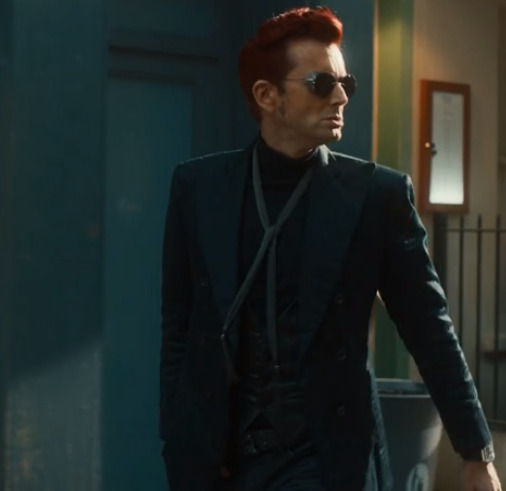
is actually this:
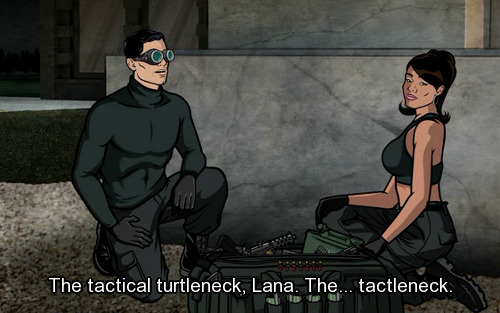
Much like the one he wears to the Dirty Donkey in 1967:
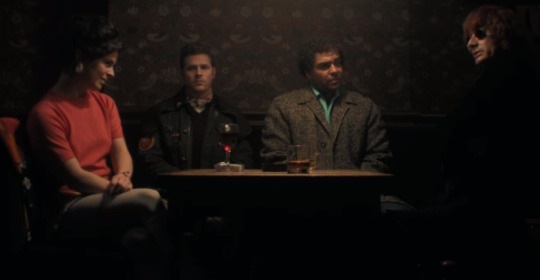
whilst holy water heist-plotting. Here's a clearer shot with gratuitous Bentley, because I love them:
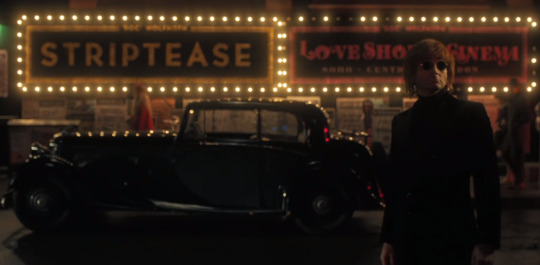
…and which he'll wear again, with appropriate camouflage, while infiltrating Heaven in S2E6:
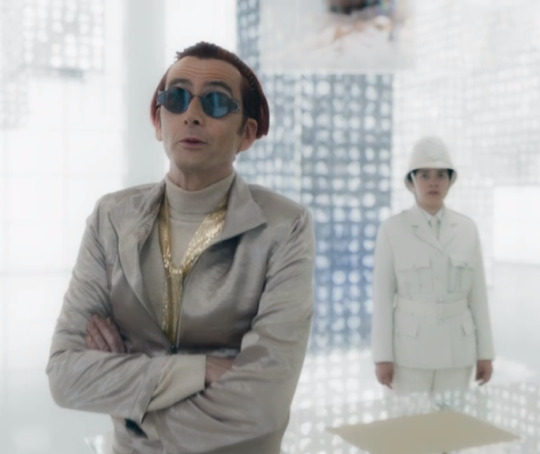
That is the 1967 planning a HEIST turtleneck for committing ESPIONAGE and STEALING THINGS in. Because turtlenecks are what modern human master spies wear to get their hands dirty - after all, he saw it in a movie once.
Crowley dons his tactical turtleneck sometime during the first major break in the action (which doesn't happen until after the joint miracle to hide Gabriel) after he learns about the threat the Book of Life poses to Aziraphale. Loverboy started mentally preparing himself to go after that book immediately upon learning that it was in play as a genuine threat.
Now let’s pick up at the S2E2 Dirty Donkey scene, reading the story from this angle. Of course, Crowley enables Aziraphale’s delusions about Heaven by hiding information from him, and does not disclose the Book of Life threat when they meet again. They go into the pub, Aziraphale shamelessly paws Crowley’s chest like the seductive Bond Girl he is, and Crowley gets to act all smooth and suave and intimidating as he chases off the interloping Mr. Brown (or Mr. Collins for the Pride & Prejudice fans, take your pick).
Ergo, theory: beginning in S2E2, Crowley is already thinking of himself as a Jane Austen/James Bond action hero (“How will our hero cope?”), psyching himself up to rescue Aziraphale by getting his spy game on and stealing the Book of Life.
Now, watch closely...This is where Aziraphale and Crowley brainstorm their plans to solve the problem they both know about: getting Maggie and Nina to fall in love and thereby get Heaven off their backs. Crowley’s vavoom plan is drawn from yet another movie (“Get humans wet and staring into each other’s eyes - vavoom, sorted. I saw it in a Richard Curtis film.”). But Crowley also implicitly shares his solution to the problem he hasn’t told Aziraphale about. And true to form, Crowley’s Jane Austen solution isn’t the same as Aziraphale’s Jane Austen solution.
Two solutions that fail by the end of Season 2, and a secret third one that might still work...and there's our magic trick of three.
‘“I’m lost. Am I doing a rainstorm?” Yes, babe. And a heist, too - just not until season three. Can I get a wahoo!?
I won’t spend time on A Companion to Owls during this meta, except to note that in all three minisodes, we get to watch stories that involve Crowley acting as a double agent on “his/their own side” - successfully making Hell and Heaven think he’s fulfilling their will while saving Job’s goats and children; failing to fool Hell when he does a good deed in Edinburgh; and of course, collaborating with Aziraphale whilst evading detection as an infernal turncoat during the Blitz.
(Because this is getting long, I'll also skip over Crowley's interrogation of Jim in this episode - I'll probably come back to that in another meta. But interrogating is a rather spy-ish thing to do.)
When we catch up with Crowley again later, he’s already slipped out of the bookshop, having left Aziraphale to his biblical reverie about Job. He saunters snakily down Whickber Street as usual, but with a very pointed and swift glance over his shoulder (see pic above). This demon is up to something - possibly something we didn’t get to see, something that may have happened offscreen while he stepped out. In any case, knowing there’ve been unfriendly angels in the neighborhood that morning, he’s rightly concerned about being spied on.
From this point until the beginning of episode six, there isn’t a whole lot of opportunity for Crowley to make any next moves. He babysits the bookshop, during which time he manages to wring some crucial information out of Jim; he follows his Crowley’s Angel around like a puppy, and downs a bottle of red like a good old fashioned lovesick boy once that’s been pointed out to him. If any plotting or scheming is underway, this occult being is keeping stumm for now.
This has been a long one, so I’ll wrap up with Crowley’s infiltration of Heaven with Muriel. The turtleneck disguise works (Archer fans, be vindicated!) long enough to gather some information that will be crucial not just to the denouement of S2, but also to Crowley’s journey in S3 (previous post on Crowley's Fall, Saraqael, and memory wiping). And Aziraphale gets to enjoy that view exactly zero times. The point isn’t oh, a turtleneck! How flirty! So cunty! So cute! Y’all. Everything matters. The costume change was a deliberate choice. In-universe, Crowley’s decision to wear his special spy turtleneck for spying in is a signal that he is out doing spy things, even as we watch.
In sum: Beginning in S2E2 and continuing through the end of the season, Aziraphale and Crowley are actively living out the scripts of two parallel, concurrent, and completely different Jane Austen stories. But you and I, dear fellow audience member, we came here for a comedy with a hefty jigger of romance, and that’s what Neil gave us to focus on. And right up until the Final 15, that was the only story we saw.
Meanwhile, Special Agent A. J. Crowley doesn’t have time to mope around at the end of S2E6. He’s kicked down, but he’s not out. He's got a Book of Life to steal, a very serious bone to pick with a certain memory-wiping angel, and his Angel and the world to save.
“‘Heigh ho,’ said [romantic, optimist, former demon, hero, master spy] Anthony Crowley, and just drove anyway.”
#so honestly#I think the biggest mark against this conclusion is that Crowley sees his mirror Maggie taking a nap at the end of S2E6#there is a strong chance of a depression nap before any further spying gets underway#but I am counting on Muriel to be a dorky ray of sunshine and snap him out of it with Clues#good omens#good omens meta#good omens 2#crowley in a turtleneck#demon bookseller plantdad spy
2K notes
·
View notes
Text
Breathing

#librarians#writers on tumblr#writerslife#literacy#booksellers#reading#book tumblr#readers of tumblr
1K notes
·
View notes
Text
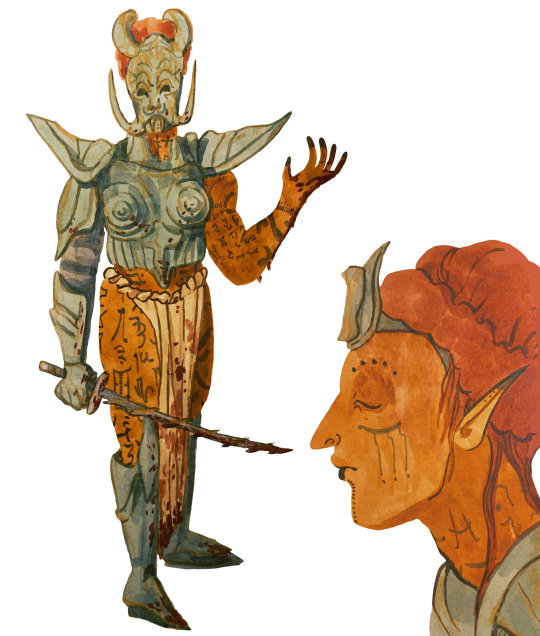
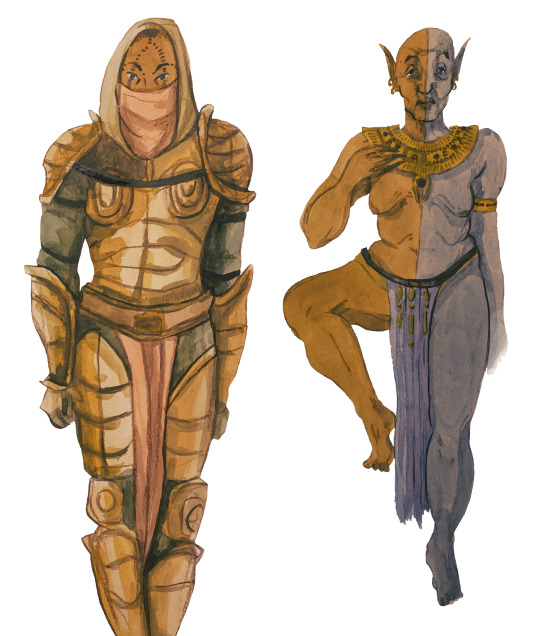
girlbossing too close to the sun.
#art#ive literally just been treating this game as a library simuator#i walk from bookseller to bookseller opening up all of their books#vivecs sermons are either a highlight or the point at which i stop reading#ive been trying to convince the ordinators that imitation is the highest form of flattery but it hasnt been working#let me wear your helmets please theyre so funny..#posting morrowind in 2024 isnt a cry for help but youre not wrong to be concerned.#morrowind#almalexia#vivec#im going to explain the chitin armor give me a moment#so the bonewalker nerevar on the shrines is adorable and it was only after drawing it however many times that i realized#it looked relatively close to a modified chitin armor#and so i modified chitin armor a few times and this was probably the cutest result#i also know i drew almalexia relatively pristine and untouched by years and vivec not so much but my thought process was#vivecs role as if not a favorite then the most accessible divine or the most “hands on” in a manner of speaking#acting in ways visible to the general population or actions explicitly brought to their attention#like not that almalexia isnt doing anything she is#but the dissemination of information regarding that is very different etc etc etc#anyways to a certain extent a god is the face on a shrine or in art or upon a statue or carving#but vivecs presence is interwoven with the geography of vvardenfell especially and his actions and writings with pubished materials#and the arts and culture and customs etc etc etc#so to me the face of a god you know and feel a commonality with or a god that walks alongside you is a face you would recognize#and vivec is already otherworldly looking enough#the simple mark of the years on his skin in some way grounding him in reality felt more right#that and i think the ways in which he and almalexia care about outward appearance are slightly different- they prioritize different things#and the ways they present outward power and their embodiment of their respective attributes share some similarities as they both have that#important preoccupation with physical power and physical strength to a certain degree#oh my god nobody read this i am yapping so bad.#tes
515 notes
·
View notes
Text
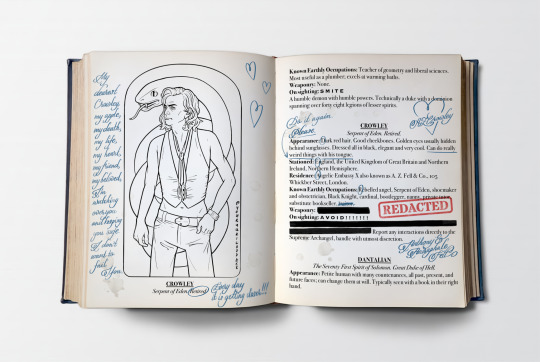
What even is this thing, a used book or an undelivered love letter?
Please collect your copy of the Angel’s Guide to Demonic Beings who Walk the Earth, Aziraphale, and give it personally to Crowley, so I can pretend this never happened.
#angel’s guide to demonic beings who walk the earth#aziraphale needs a hug#and stop possessing people#it’s been six months already#still#no nightingales#monsieur rossignol#bookseller#good omens#good omens 2#supreme archangel aziraphale#aziraphale#crowley#ineffable husbands#good omens fanart#digital art#illustration
362 notes
·
View notes
Text
Crowley yeeting the books is peak orange cat behavior.

#I refuse to elaborate#this post brought to you by an orange cat#good omens#crowley#not a bookseller not even at gunpoint#good omens s2#gos2#good omens 2#yeet!
729 notes
·
View notes
Text
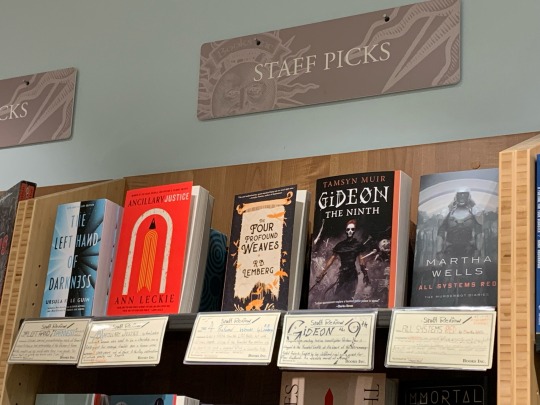
My staff picks shelf has ended up being VERY Gender at the moment…
#bookseller#bookstore#the left hand of darkness#ursula k. le guin#ancillary justice#imperial radch#ann leckie#the four profound weaves#rb lemberg#bird verse#gideon the 9th#the locked tomb#tlt#tamsyn muir#all systems red#murderbot#martha wells
559 notes
·
View notes
Text
How a billionaire’s mediocre pump-and-dump “book” became a “bestseller”
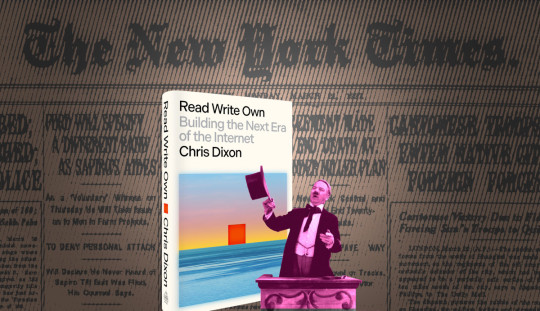
If you'd like an essay-formatted version of this post to read or share, here's a link to it on pluralistic.net, my surveillance-free, ad-free, tracker-free blog:
https://pluralistic.net/2024/02/15/your-new-first-name/#that-dagger-tho

I was on a book tour the day my editor called me and told me, "From now on, your middle name is 'Cory.'"
"That's weird. Why?"
"Because from now on, your first name is 'New York Times Bestselling Author.'"
That was how I found out I'd hit the NYT list for the first time. It was a huge moment – just as it has been each subsequent time it's happened. First, because of how it warmed my little ego, but second, and more importantly, because of how it affected my book and all the books afterwards.
Once your book is a Times bestseller, every bookseller in America orders enough copies to fill a front-facing display on a new release shelf or a stack on a bestseller table. They order more copies of your backlist. Foreign rights buyers at Frankfurt crowd around your international agents to bid on your book. Movie studios come calling. It's a huge deal.
My books became Times bestsellers the old-fashioned way: people bought and read them and told their friends, who bought and read them. Booksellers who enjoyed them wrote "shelf-talkers" – short reviews – and displayed them alongside the book.
That "From now on your first name is 'New York Times Bestselling Author' gag is a tradition. When @wilwheaton's memoir Still Just A Geek hit the Times list, I texted the joke to him and he texted back to say @jscalzi had already sent him the same joke (and of course, Scalzi and I have the same editor, Patrick Nielsen Hayden):
https://www.harpercollins.com/products/still-just-a-geek-wil-wheaton
But not everyone earns that first name the same way. Some people cheat.
Famously, the Church of Scientology was caught buying truckloads of L Ron Hubbard books (published by Scientology's own publishing arm) from booksellers, returning them to their warehouse, then shipping them back to the booksellers when they re-ordered the sold out titles. The tip-off came when booksellers opened cases of books and found that they already bore the store's own price-stickers:
https://www.latimes.com/local/la-scientology062890-story.html
The reason Scientology was willing to go to such great lengths wasn't merely that readers used "NYT Bestseller* to choose which books to buy. Far more important was the signal that this sent to the entire book trade, from reviewers to librarians to booksellers, who made important decisions about how many copies of the books to stock, whether to display them spine- or face out, and whether to return unsold stock or leave it on the shelf.
Publishers go to great lengths to send these messages to the trade: sending out fancy advance review copies in elaborate packaging, taking out ads in the trade magazines, featuring titles in their catalogs and sending their sales-force out to impress the publisher's enthusiasm on their accounts.
Even the advance can be a way to signal the trade: when a publisher announces that it just acquired a book for an eyebrow-raising sum, it's not trumpeting the size of its capital reserves – it's telling the trade that this book is a Big Deal that they should pay attention to.
(Of all the signals, this one may be the weakest, even if it's the most expensive for publishers to send. Take the $1.25m advance that Rupert Murdoch's Harpercollins paid to Sarah Palin for her unreadable memoir, Going Rogue. As with so many of the outsized sums Murdoch's press and papers pay to right wing politicians, the figure didn't represent a bet on the commercial prospects of the book – which tanked – but rather, a legal way to launder massive cash transfers from the far-right billionaire to a generation of politicians who now owe him some rather expensive favors.)
All of which brings me to the New York Times bestselling book Read Write Own by the billionaire VC New York Times Bestselling Author Chris Dixon. Dixon is a partner at A16Z, the venture capitalists who pumped billions into failed, scammy, cryptocurrency companies that tricked normies into converting their perfectly cromulent "fiat" money into shitcoins, allowing the investors to turn a massive profit and exit before the companies collapsed or imploded.
Read Write Own (subtitle: "Building the Next Era of the Internet") is a monumentally unconvincing hymn to the blockchain. As Molly White writes in her scathing review, the book is full of undisclosed conflicts of interest, with Dixon touting companies he has a direct personal stake in:
https://www.citationneeded.news/review-read-write-own-by-chris-dixon/
But this book's defects go beyond this kind of sleazy pump-and-dump behavior. It's also just bad. The arguments it makes for the blockchain as a way of escaping the problems of an enshittified, monopolized internet are bad arguments. White dissects each of these arguments very skillfully, and I urge you to read her review for a full list, but I'll reproduce one here to give you a taste:
After three chapters in which Dixon provides a (rather revisionistd) history of the web to date, explains the mechanics of blockchains, and goes over the types of things one might theoretically be able to do with a blockchain, we are left with "Part Four: Here and Now", then the final "Part Five: What's Next". The name of Part Four suggests that he will perhaps lay out a list of blockchain projects that are currently successfully solving real problems.
This may be why Part Four is precisely four and a half pages long. And rather than name any successful projects, Dixon instead spends his few pages excoriating the "casino" projects that he says have given crypto a bad rap,e prompting regulatory scrutiny that is making "ethical entrepreneurs … afraid to build products" in the United States.f
As White says, this is just not a good book. It doesn't contain anything to excite people who are already blockchain-poisoned crypto cultists – and it also lacks anything that will convince normies who never let Matt Damon or Spike Lee convince them to trade dollars for magic beans. It's one of those books that manages to be both paper and a paperweight.
And yet…it's a New York Times Bestseller. How did this come to pass? Here's a hint: remember how the Scientologists got L Ron Hubbard 20 consecutive #1 Bestsellers?
As Jordan Pearson writes for Motherboard, Read Write Own earned its place on the Times list because of a series of massive bulk orders from firms linked to A16Z and Dixon, which ordered between dozens and thousands of copies and gave them away to employees or just randos on Twitter:
https://www.vice.com/en/article/n7emkx/chris-dixon-a16z-read-write-own-nyt-bestseller
The Times recognizes this in a backhanded way, by marking Read Write Own on the list with a "dagger" (†) that indicates the shenanigans (the same dagger appeared alongside the listing for Donald Trump Jr's Triggered after the RNC spent a metric scientologyload of money – $100k – buying up cases of it):
https://www.nytimes.com/2019/11/21/books/donald-trump-jr-triggered-sales.html
There's a case for the Times not automatically ignoring bulk orders. Since 2020, I've run Kickstarters where I've pre-sold my books on behalf of my publisher, working with bookstores like Book Soup and wholesalers like Porchlight Books to backers when they go on sale. I signed and personalized 500+ books at Vroman's yesterday for backers who pre-ordered my next novel, The Bezzle:
https://www.flickr.com/photos/doctorow/53531243480/
But there's a world of difference between pre-orders that hundreds or thousands of readers place that are aggregated into a single bulk order, and books that are bought by CEOs to give away to people who may not have any interest in them. For the book trade – librarians, reviewers, booksellers – the former indicates broad interest that justifies their attention. The latter just tells you that a handful of deep-pocketed manipulators want you to think there's broad interest.
I'm certain that Dixon – like me – feels a bit of pride at having "earned" a new first name. But Dixon – like me – gets something far more tangible than a bit of egoboo out of making the Times list. For me, a place on the Times list is a way to get booksellers and librarians excited about sharing my book with readers.
For Dixon, the stakes are much higher. Remember that cryptocurrency is a faith-based initiative whose mechanism is: "convince normies that shitcoins will be worth more tomorrow than they are today, and then trade them the shitcoins that cost you nothing to create for dollars that they worked hard to earn."
In other words, crypto is a bezzle, defined by John Kenneth Galbraith as "The magic interval when a confidence trickster knows he has the money he has appropriated but the victim does not yet understand that he has lost it."
So long as shitcoins haven't fallen to zero, the bag-holders who've traded their "fiat" for funny money can live in the bezzle, convinced that their "investments" will recover and turn a profit. More importantly, keeping the bezzle alive preserves the possibility of luring in more normies who can infuse the system with fresh dollars to use as convincers that keep the bag-holders to keep holding that bag, rather than bailing and precipitating the zeroing out of the whole scam.
The relatively small sums that Dixon and his affiliated plutocrats spent to flood your podcasts with ads for this pointless 300-page Ponzi ad are a bargain, as are the sums they spent buying up cases of the book to give away or just stash in a storeroom. If only a few hundred retirees are convinced to convert their savings to crypto, the resulting flush of cash will make the line go up, allowing whales like Dixon and A16Z to cash out, or make more leveraged bets, or both. Crypto is a system with very few good trades, but spending chump change to earn a spot on the Times list (dagger or no) is a no-brainer.
After all, the kinds of people who buy crypto are, famously, the kinds of people who think books are stupid ("I would never read a book" -S Bankman-Fried):
https://www.washingtonpost.com/opinions/2022/11/29/sam-bankman-fried-reading-effective-altruism/
There's precious little likelihood that anyone will be convinced to go long on crypto thanks to the words in this book. But the Times list has enough prestige to lure more suckers into the casino: "I'm not going to read this thing, but if it's on the list, that means other people must have read it and think it's convincing."
We are living through a golden age of scams, and crypto, which has elevated caveat emptor to a moral virtue ("not your wallet, not your coins"), is a scammer's paradise. Stein's Law tells us that "anything that can't go on forever will eventually stop," but the purpose of a bezzle isn't to keep the scam going forever – just until the scammer can cash out and blow town. The longer the bezzle goes on for, the richer the scammer gets.
Not for nothing, my next novel – which comes out on Feb 20 – is called The Bezzle. It stars Marty Hench, my hard-driving, two-fisted, high-tech forensic accountant, who finds himself unwinding a whole menagerie of scams, from a hamburger-based Ponzi scheme to rampant music royalty theft to a vast prison-tech scam that uses prisoners as the ultimate captive audience:
https://us.macmillan.com/books/9781250865878/thebezzle
Patrick Nielsen Hayden – the same editor who gave me my new first name – once told me that "publishing is the act of connecting a text with an audience." Everything a publisher does – editing, printing, warehousing, distributing – can be separated from publishing. The thing a publisher does that makes them a publisher – not a printer or a warehouser or an editing shop – is connecting books and audiences.
Seen in this light, publishing is a subset of the hard problem of advertising, religion, politics and every other endeavor that consists in part of convincing people to try out a new idea:
https://pluralistic.net/2021/07/04/self-publishing/
This may be the golden age of scams, but it's the dark age of publishing. Consolidation in distribution has gutted the power of the sales force to convince booksellers to stock books that the publisher believes in. Consolidation in publishing – especially Amazon, which is both a publisher and the largest retailer in the country – has stacked the deck against books looking for readers and vice-versa (Goodreads, a service founded for that purpose, is now just another tentacle on the Amazon shoggoth). The rapid enshittification of social media has clobbered the one semi-reliable channel publicists and authors had to reach readers directly.
I wrote nine books during lockdown (I write as displacement activity for anxiety) which has given me a chance to see publishing in the way that few authors can: through a sequence of rapid engagements with the system as a whole, as I publish between one and three books per year for multiple, consecutive years. From that vantagepoint, I can tell you that it's grim and getting grimmer. The slots that books that connected with readers once occupied are now increasingly occupied by the equivalent of the botshit that fills the first eight screens of your Google search results: book-shaped objects that have gamed their way to the top of the list.
https://www.theguardian.com/commentisfree/2024/jan/03/botshit-generative-ai-imminent-threat-democracy
I don't know what to do about this, but I have one piece of advice: if you read a book you love, tell other people about it. Tell them face-to-face. In your groupchat. On social media. Even on Goodreads. Every book is a lottery ticket, but the bezzlers are buying their tickets by the case: every time you tell someone about a book you loved (and even better, why you loved it), you buy a writer another ticket.
Meanwhile, I've got to go get ready for my book tour. I'm coming to LA, San Francisco, Seattle, Vancouver, Calgary, Phoenix, Portland, Providence, Boston, New York City, Toronto, San Diego, Salt Lake City, Tucson, Chicago, Buffalo, as well as Torino and Tartu (details soon!).
If you want to get a taste of The Bezzle, here's an excerpt:
https://www.torforgeblog.com/2023/11/20/excerpt-reveal-the-bezzle-by-cory-doctorow/
And here's the audiobook, read by New York Times Bestselling Author Wil Wheaton:
https://archive.org/download/Cory_Doctorow_Podcast_459/Cory_Doctorow_Podcast_459_-_The_Bezzle_Read_By_Wil_Wheaton.mp3
#pluralistic#molly white#books#publishing#dunning kruggerands#crypto#cryptocurrency#a16z#venture capitalism#guillotine watch#this is why we can't have nice things#bookselling#the bezzle#bezzles#web3#blockchain
373 notes
·
View notes
Text
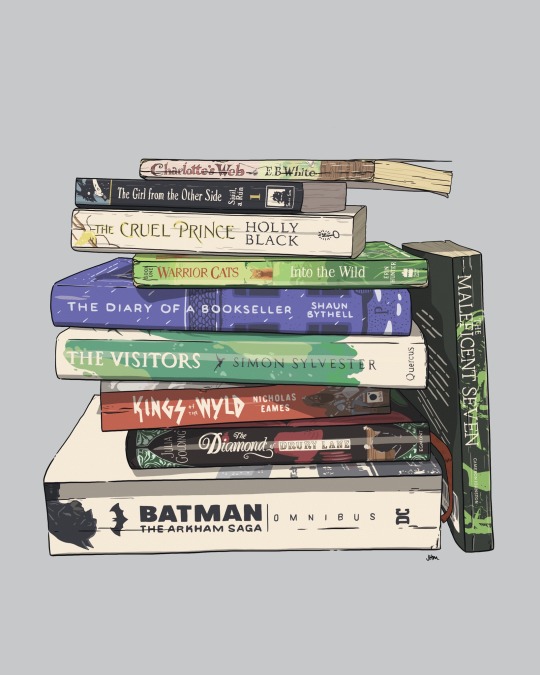
Another new commission! Have you read any of these?
Shop / Instagram
#my art#artists on tumblr#books#booklr#illustration#bookstack#warrior cats#batman#kings of the wyld#the diary of a bookseller#charlottes web
339 notes
·
View notes
Text


Recent visit to my favorite used bookstore in NYC, Westsider Books on the Upper West Side. They sell antique, rare, vintage, and newer used books. I bought some vintage Freud, Stendhal, and Balzac.
#bookblr#books#bookstore#antique books#vintage#dark academia#downtown girl#dark green aesthetic#vintage aesthetic#bookstore aesthetic#library#vintage library#old bookshop#old books#books & libraries#bookseller#bookish#personal#studyblr#mine#book academia#dark cottagecore#new york city#new york aesthetic
2K notes
·
View notes
Text
sedation whump tho
TW: sedation, drugging, restraints, helplessness
Being drugged into unconsciousness, sure.
But what's even better is a whumpee who is sedated, but not enough to put them completely under.
Just vaguely aware of what's happening, watching through heavy eyelids that keep wanting to close on them.
Too sleepy to fight back as they're picked up and strapped down, awake enough to know what a bad position they're in but too asleep to stop it from happening.
So drowsy that they keep drifting in and out of sleep even as the whumper prepares medical tools or torture implements or strange experiments.
Just awake enough to mumble sleepy little protests or respond to simple questions.
They manage to wake themselves up, but their body is still too uncoordinated to do anything about it when the whumper picks up their limp arm and injects them with another dose of sedative.
Fluttering, sleepy eyes above a mask that's keeping them dazed and out of it, as their kidnappers discuss what to do with them now that they're helpless.
So drugged and sedated that they lack the willpower to tear their eyes away from the hypnotic screen, letting their suggestible mind absorb all the words from the hypnotic earphones.
A sedated whumpee trying to escape, knowing that if they slow down or let their eyes close the guards will be on them in a moment and they're too drugged to fight back.
A whumpee who has been hit with a tranquilizer dart and managed to find a place to hide, desperately trying to keep themselves awake as their pursuers come closer and closer.
#sedation#whump#whump prompts#write any of these and I want to read it#I love prompts like this too#when I work through some of my bookseller backlog maybe#drugging#mind control#kidnapping
374 notes
·
View notes
Text

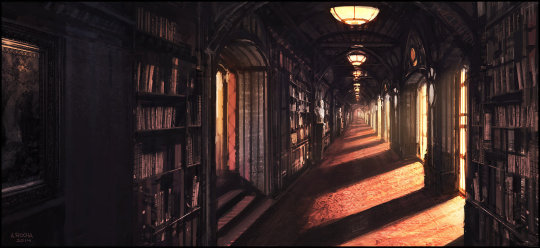


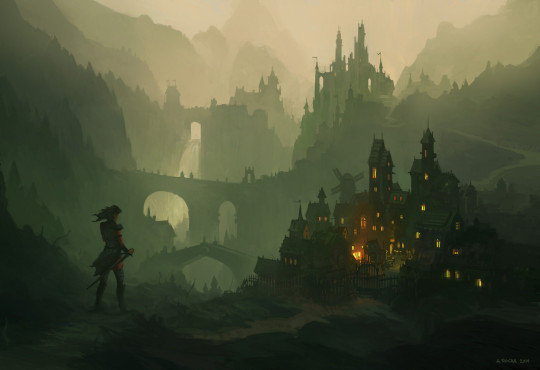
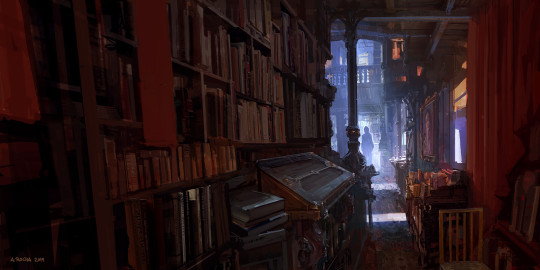
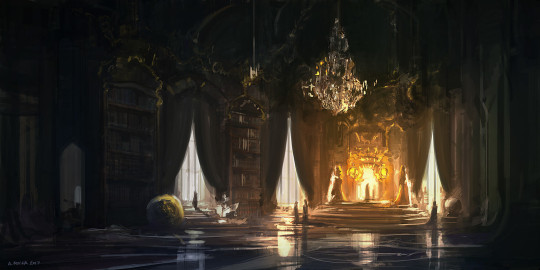
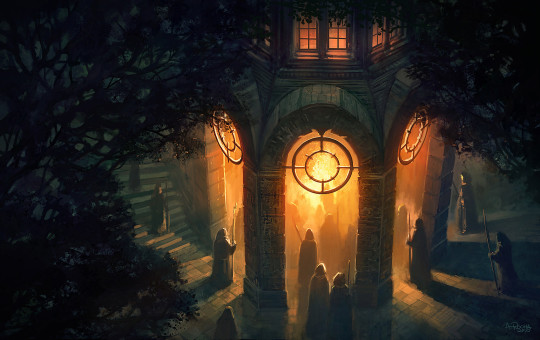
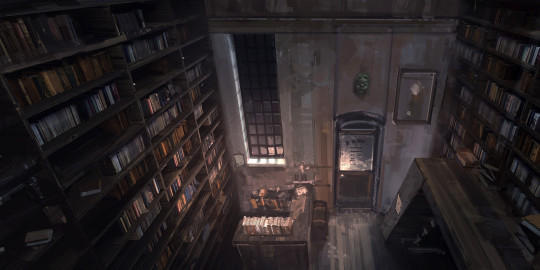



The amazing digital art of Andreas Rocha
#artists#digital art#digital painting#fantasy#illustration#landscape#library#bookshop#books#reading#passion#book#bookseller
3K notes
·
View notes